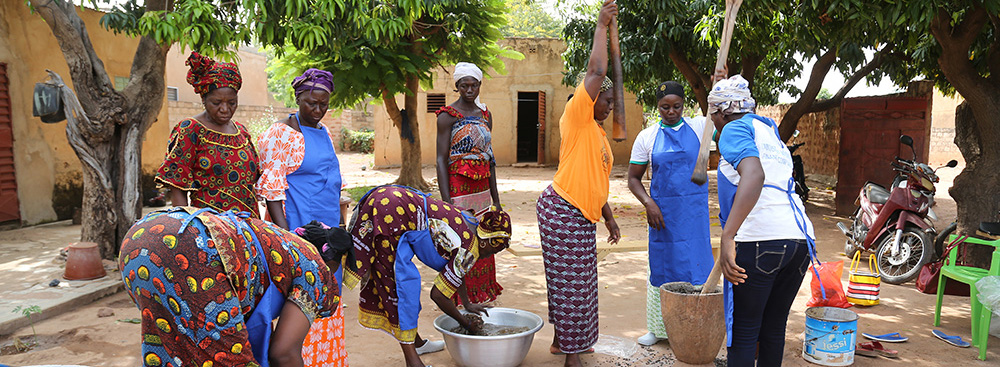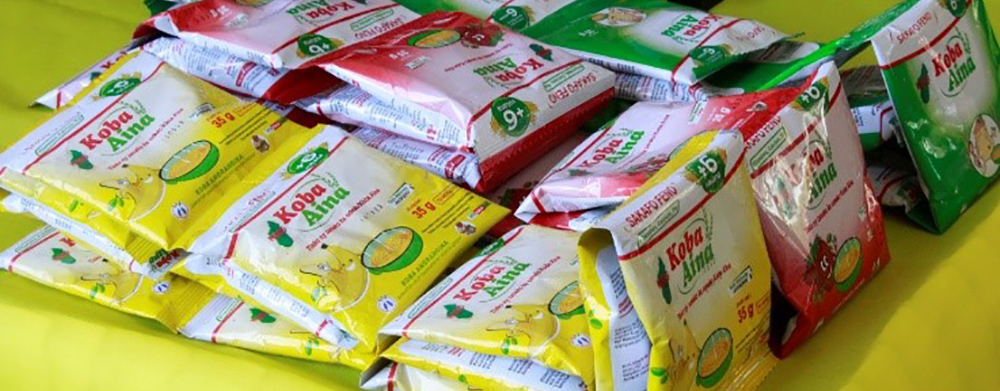In West Africa, 40 million people suffer from chronic under-nutrition and malnutrition. The underlying factors are linked to food system environments, as well as production, processing and marketing constraints for agricultural products, and to households’ poor means and lack of nutritional knowledge on appropriate foods.
The ASANAO2 programme intends to strengthen reflection on GRET’s and its partners’ intervention strategy for food and nutrition security. It is based on 8 projects being implemented in 8 countries in which GRET and its partners have been conducting actions addressing these issues for many years. It is funding cross-cutting actions consisting of facilitation, exchange, and knowledge production on gateways to be established between agriculture and nutrition. It is also developing advocacy at national and international levels to promote healthy sustainable food systems. On this page you will find various publications produced as part of this programme, and several articles on activities conducted by GRET and its partners in the different countries.

The ASANAO2 programme was rolled out in 8 countries from 2021 to 2024 to promote healthy, sustainable diets. After 3 years of support, the actions conducted have generated numerous impacts, benefitting pregnant and breastfeeding women, young children, small-scale producers and livestock farmers, small local processing businesses and, more broadly, stakeholders in the health and nutrition sectors:
Training and support for women, school children, small-scale producers and farmers, and food and nutrition security actors in countries:
Sustained, collective actions to support small-scale producers and livestock farmers in agroecological transition, and local organisations in processing healthy products with high nutritional value:
2021
A fun nutrition education tool to strengthen prevention of child malnutrition in Niger (April 2021)
New contributions to fight against the kere in the south of Madagascar (May 2021)
Sustainable food systems that favour nutrition (June 2021)
Agricultural development and social protection: levers to sustainably improve food and nutrition security in Haiti (September 2021)
2022
Agroecological products are in vogue in the streets of Siem Reap (September 2022)
Improving communities’ information and knowledge on agricultural, food and nutrition issues in Guinea (November 2022)
Three innovative projects in favour of ecological transition (November 2022)
Milk and school canteens: improving income and food security in Bobo-Dioulasso (November 2022)
Promoting healthy, sustainable food systems in international arenas (January 2023)
From Siem Reap Province to the Hauts-de-Seine area in France, ten years of cooperation in favour of agroecology (January 2023)
2023
Mauritania: promoting optimal feeding practices to fight against child malnutrition (March 2023)
Fighting against non-transmissible diseases (September 2023)
Nutri’zaza, 10 years of action for children and the Malagasy population (October 2023)
Urban agriculture: improving food supply in cities (November 2023)

Articles on infant flours and fortified productsLocal infant flours, a promising value chain to be developed and structured (November 2022)
“Samani”, a local fortified infant flour for children in Mali (November 2022)
Niger: Launch of Vitamil +, a new infant flour to prevent malnutrition (March 2023)
Nafama, spices to prevent nutritional deficiencies in women in Mali (March 2022)
Several papers on Asanao were published in the “Development policies & practices” collection, designed to inform reflection on development by drawing on the experience of GRET and its partners.
Building sustainable links between agriculture and nutrition (N°24, February 2020)